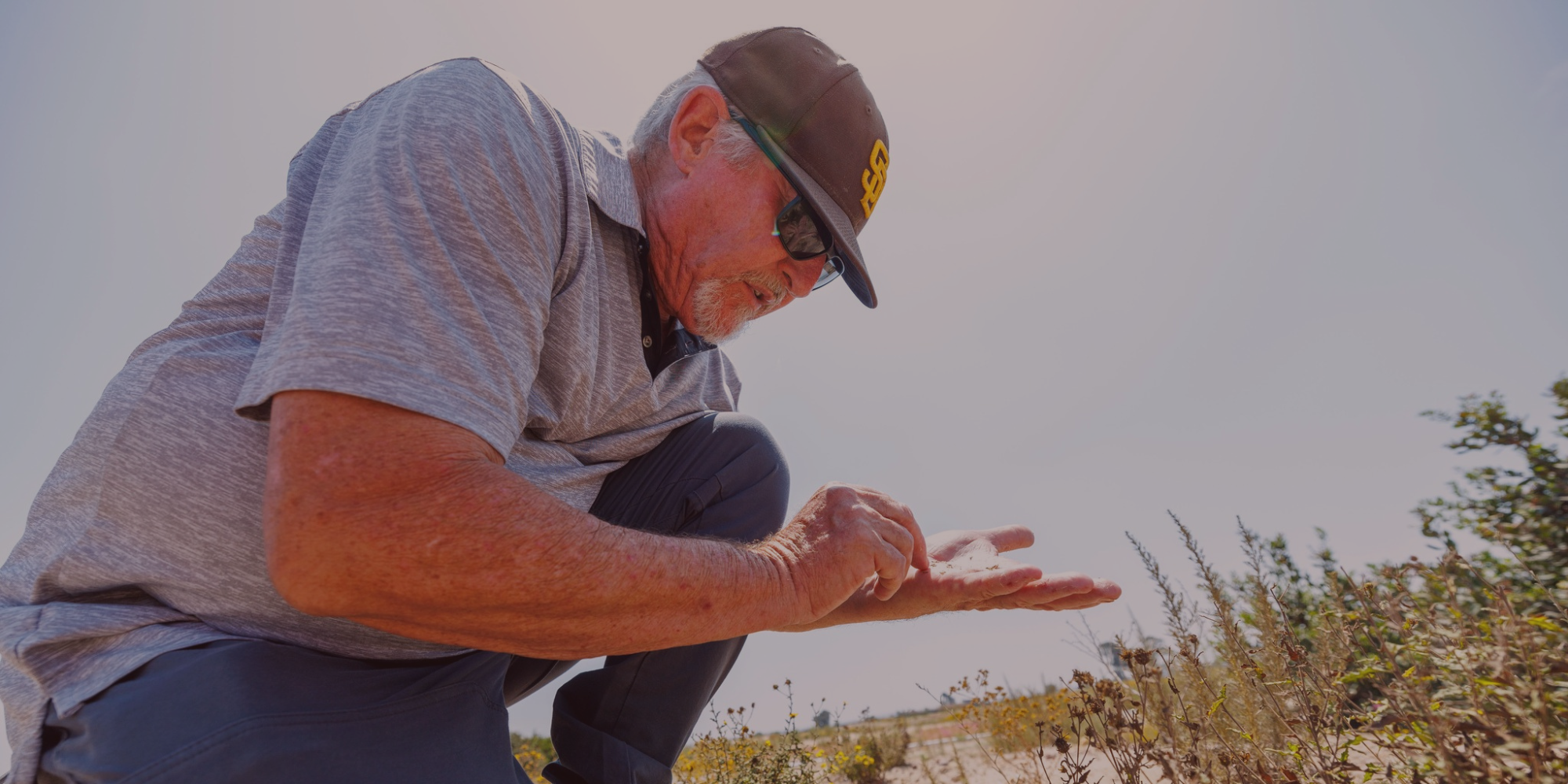Healing the earth: how Br. James restores nature with faith and science
Date Published: September 04, 2024
By Eli Pacheco
In the heart of Southern California, home of sun-kissed beaches and sprawling cityscapes, a Franciscan friar is waging a quiet yet determined battle against environmental degradation.
An ecologist and friar, Br. James Lockman, OFM, is on a lifelong mission to heal the Earth and preserve God’s creation, one acre at a time, with science and his Catholic faith.
With advanced degrees in environmental horticulture from the University of California-Davis and theology from the Franciscan School of Theology, his education has fueled his passion for his ministry.
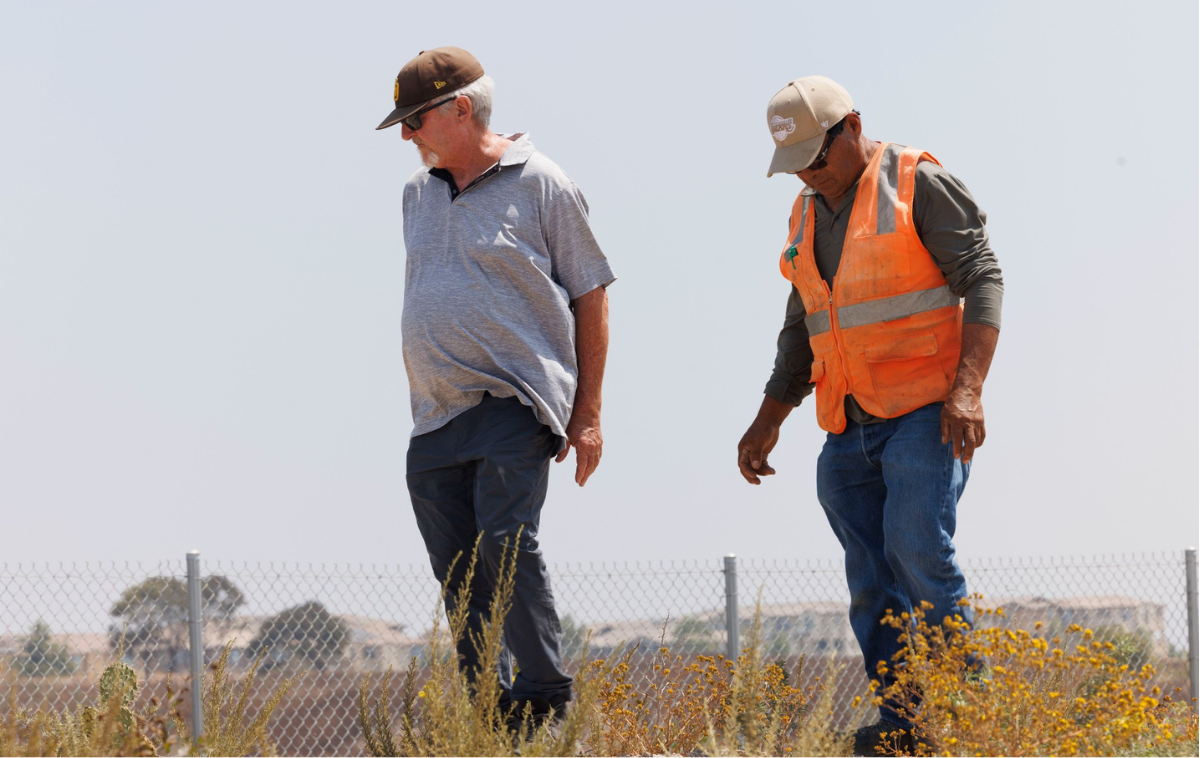
Br. James Lockman, OFM, left, and colleague Fausto Larios inspect a field. In 2010, Br. James teamed with a local firm, Tierra Data, Inc., and began working on environmental projects such as biological monitoring for public works and development. (Photo courtesy of Br. Octavio Duran)
Healing the land with faith and science
As a young friar, Br. James spent five years studying the Brazilian Amazon rainforest, one of the world’s most biodiverse places and one vulnerable to deforestation and degradation.
Br. James worked with a non-governmental organization in Pará, a state in Northern Brazil, that focused on creating sustainable pathways for development in the region.
He also gave talks about ecology, raising awareness about, among other things, the exploitation of the Amazon considering reparation theology.
“It has been a dream of mine, from my youth, to submerge myself into the reality of that incredible ecosystem and engage in practical studies that would filter down to benefitting the people there,” Br. James said.
After he returned to the U.S., he engaged in other ministries before returning to ecology 15 years later. In 2010, he teamed up with a local firm, Tierra Data, Inc., and began a new working division of the company focused on Restoration Ecology.
With his colleague Fausto Larios, their work became a major focus for TDI within six years and continues to be a central business theme for the company.
With Tierra Data, Br. James has facilitated the restoration of more than 1,000 acres of land in the San Diego area. They work with the California Department of Transportation, national and state parks, the City of San Diego, and the U.S. military to revitalize ecosystems.
“We take land that had been severely degraded through human activity and restore it to the natural habitat that occurred before the disturbance,” said Br. James, who once served as guardian and executive director at Old Mission San Luis Rey in Oceanside, California.
“We do what plant ecologists call old field succession at an accelerated rate to achieve sustainable habitat in five to 10 years, versus 50 to 100 years through natural processes if left undisturbed."
The science behind the process is mind-boggling. The spirituality behind the effort is divine. And there is an urgent need for this ministry.
The National Oceanic and Atmospheric Administration (NOAA) reports that the cost of climate change – in terms of impacts on physical, mental, spiritual and community health and well-being – is an estimated $150 billion (about $460 per person) annually in the United States alone.
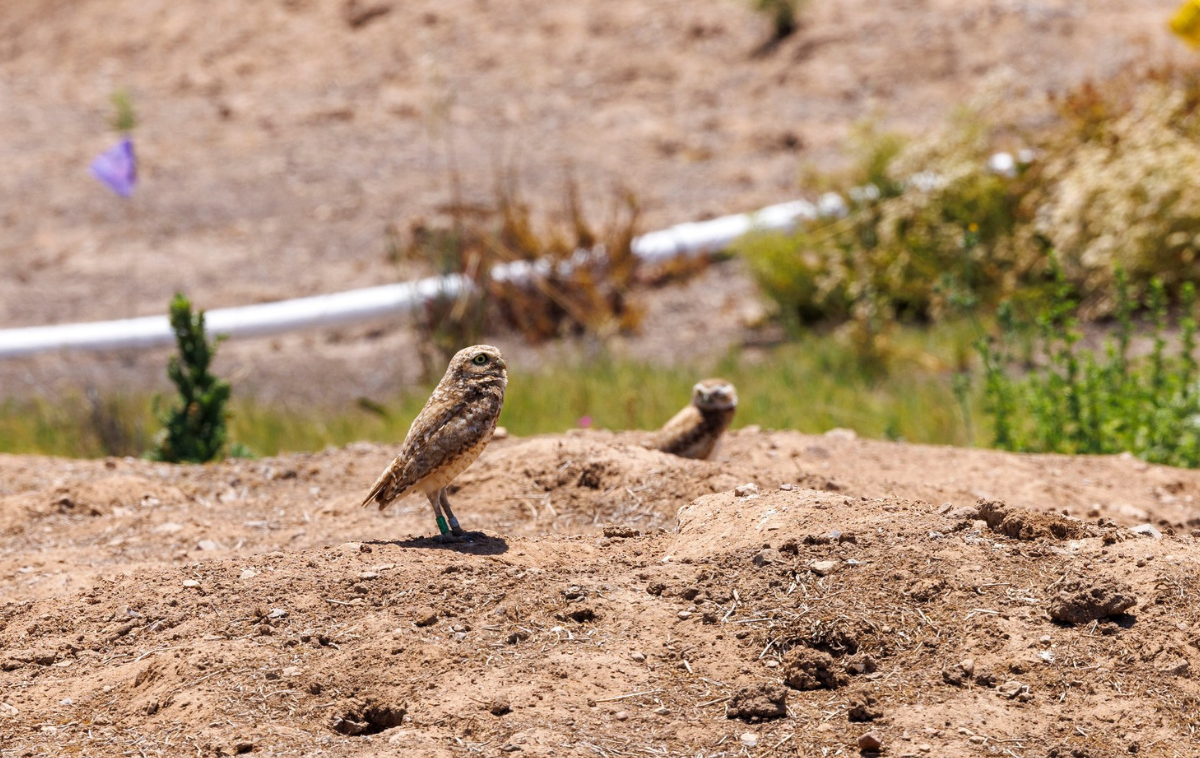
When it was first published, Laudato Si’ sparked new momentum for Br. James and many others who work for climate justice and care for creation in St. Francis’ spirit. (Photo courtesy of Br. Octavio Duran)
Pope Francis’ environmental ‘playbook’
Br. James draws inspiration from Laudato Si’, Pope Francis’s encyclical, or letter, released in 2015 that provides guidance on caring for the poor and for God’s creation.
Its title, Laudato Si’ (or “Praised be to you Lord”), comes from the Canticle of Creation composed by St. Francis of Assisi in 1224. It is a call for all people — not only Catholics — to change their ways to save the earth and care for the poor, who are most affected by climate disasters.
“Pope Francis has taken fundamentals of Francis’ insights into nature and translated them into a clarion call for humans to become much more aware of the incredible ecological crisis that we are amid today, including what we now call ‘climate chaos,’” Br. James said.
When it was first published in 2015, Laudato Si’ sparked new momentum for Br. James and many others who work for climate justice and care for creation in St. Francis’ spirit.
“Those of us who have been involved in the human side of ecology for a long time feel it reads like a playbook,” he said. “I’ve lectured on Laudato Si’. As a scientist, I cannot find any significant scientific error in the work.”
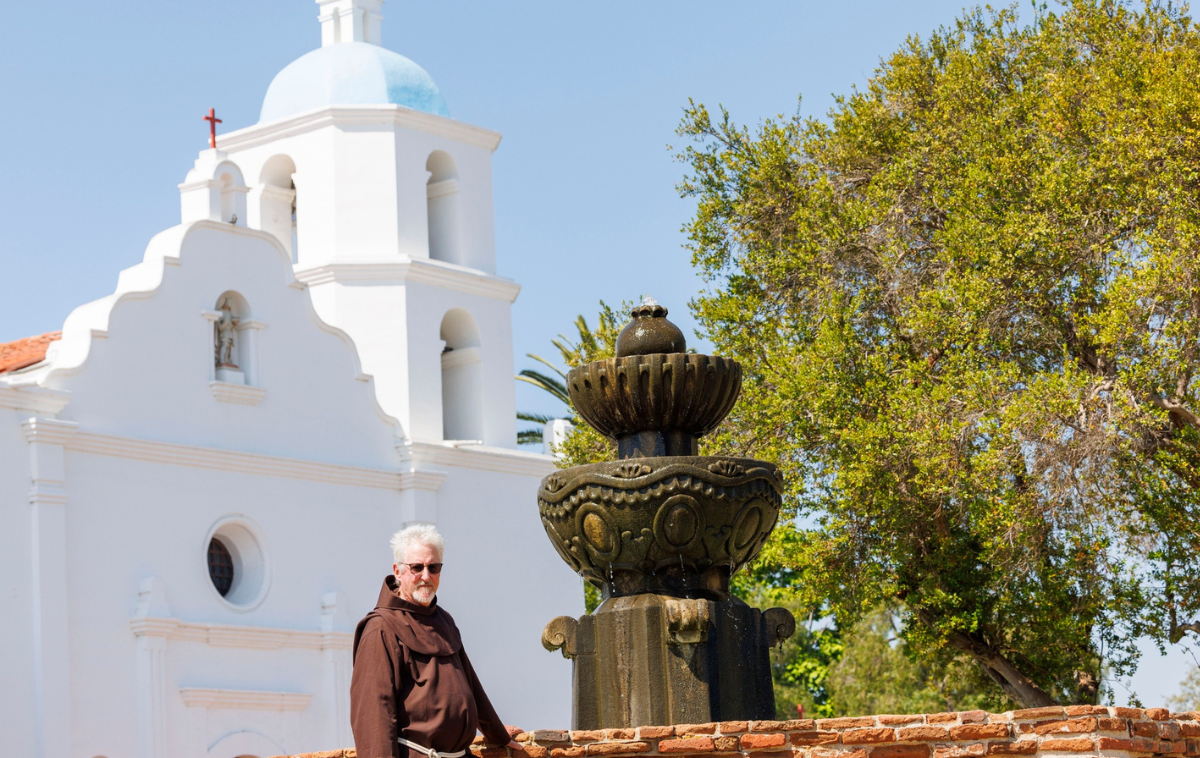
“We take land that had been severely degraded through human activity and restore it to the natural habitat that occurred before the disturbance,” said Br. James, who once served as guardian and executive director at Old Mission San Luis Rey in Oceanside, California. (Photo Courtesy of Br. Octavio Duran)
Amidst dire warning signs, a reason for hope
At age 71, Br. James considers this work his “final career period” but also “the most important work I have done as a friar,” he said.
He is grateful for the support of people like Br. Joseph Chinnici, OFM, who, as provincial minister in the 1990s, recognized Br. James’s potential as a friar-ecologist who could do critical work in the world.
Br. James sees a rough future for humankind if it does not change its relationship to the environment. “The way things are going now, if left unchecked, makes the future look grim,” he said.
But, Br. James says, there are abundant reasons for hope.
“In so many ways in the past, humans have been able to find ways of making changes for the better,” he said. “We are not in this alone.”
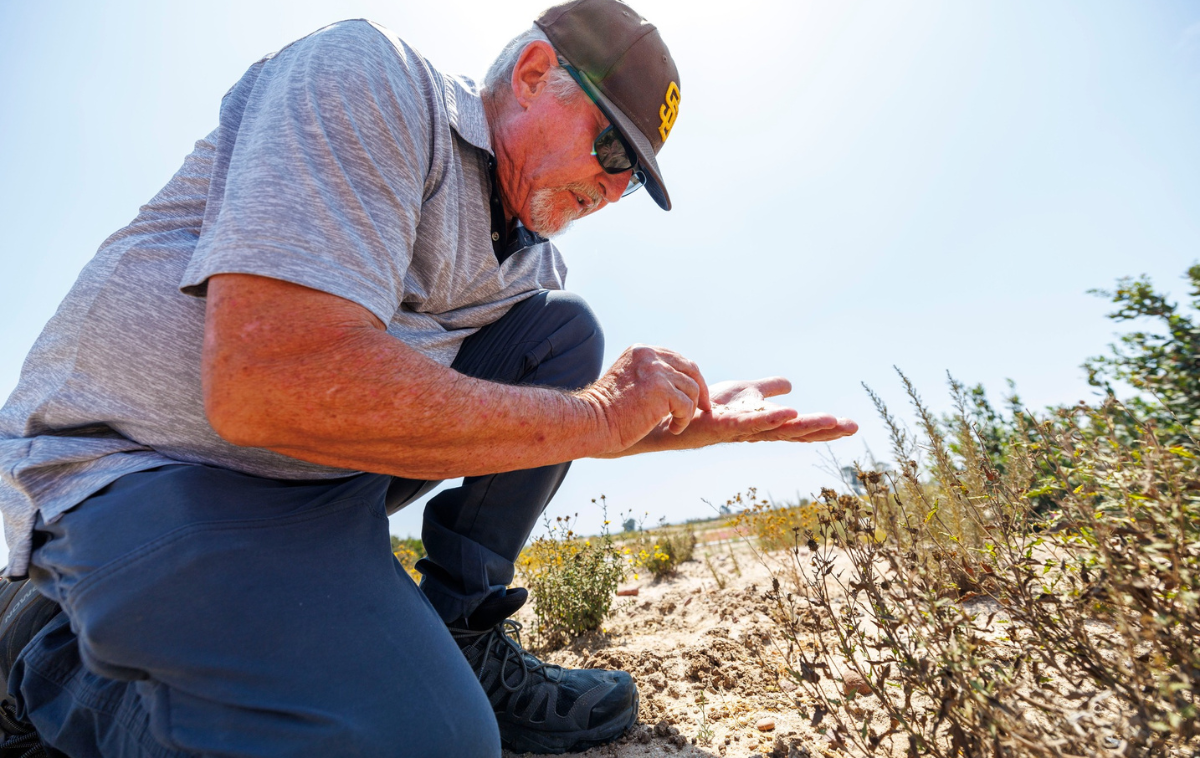
Together with the Diocese of San Diego’s Creation Care ministry, Br. James and others have planted hundreds of trees in the San Diego area, many of them native species. (Photo courtesy of Br. Octavio Duran)
How to lessen your impact on the environment
You do not have to be an ecologist to help heal the earth. Here are some ways that you can help heal the planet on your own and with your local community:
Plant a tree
Together with the Diocese of San Diego’s Creation Care ministry, Br. James and others have planted hundreds of trees in the San Diego area, many of them native species.
Start recycling
Reduce, reuse and recycle – both in your home and at your place of work. Br. James has seen parishes build comprehensive recycling programs.
Create a community garden
Growing food locally helps reduce the amount of pollution typically associated with the food production process. It can also help provide fresh produce for people who might not otherwise have access to it.
Reduce your dependence on single-use plastics
Single-use plastics are designed to be used once before they are thrown away or recycled. Take stock of the single-use plastics you use on a regular basis and identify how you can replace them with a reusable product – such as choosing to use an aluminum water bottle, rather than buying a case of plastic water bottles.
Read Laudato Si’
To learn more about the interconnectivity between the environment and the poor, read Pope Francis’s encyclical. It is available for free on the Vatican website. (Read it in English or in Spanish.)
Address the primary cause
When reading Laudato Si', and the more recent apostolic exhortation, Laudate Deum, Pope Francis clarifies that our response to the Cry of the Earth and the Cry of the Poor cannot be limited to individual actions.
The most impact will come from political and cultural issues, “At the same time, I cannot deny that it is necessary to be honest and recognize that the most effective solutions will not come from individual efforts alone, but above all from major political decisions on the national and international level.” (Laudate Deum, para. 69.) Br. James’s work in the Amazon is an example of this social approach.
Friars, in collaboration with the people they serve, for many years have responded to the call to work on the political front, bringing the Gospel message to the social sphere united with others.
They have worked with groups to amplify their sharing of the Gospel through organizations such as the Catholic Climate Covenant and Franciscan Action Network and secular organizations. The Gospel's call to care for creation and those who live on the margins are public moral issues.
Suppose the Church and the friars, as a part of this, do not also include this mandate to put love in action as a central element of our Gospel life. In that case, organizations and people shaping the public moral discussion do not have the full potential for all people to flourish in community with creation as we believe God intends for us.
Try something new
Whatever you decide to do, it is important that you are doing something. If we are to heal the Earth, we “must undergo a conversion,” Br. James says. “The world is broken, and we’re in an ecological crisis.”
Making lifestyle changes and taking up new daily practices – no matter how big or small – will have a lasting impact. Says Br. James: “It is opening the door for people to help heal the Earth.”
And that is a reason for hope.

